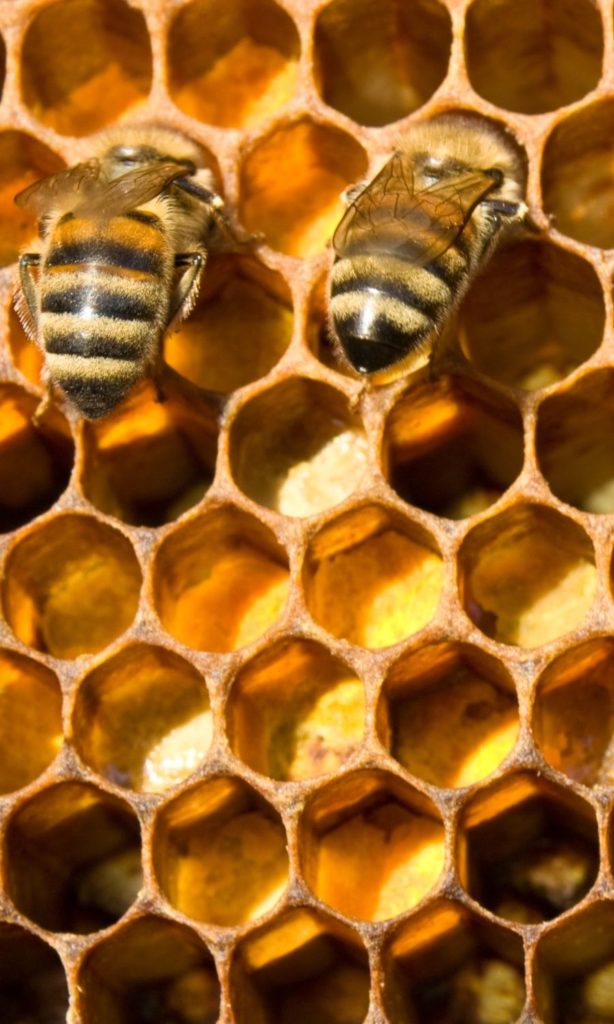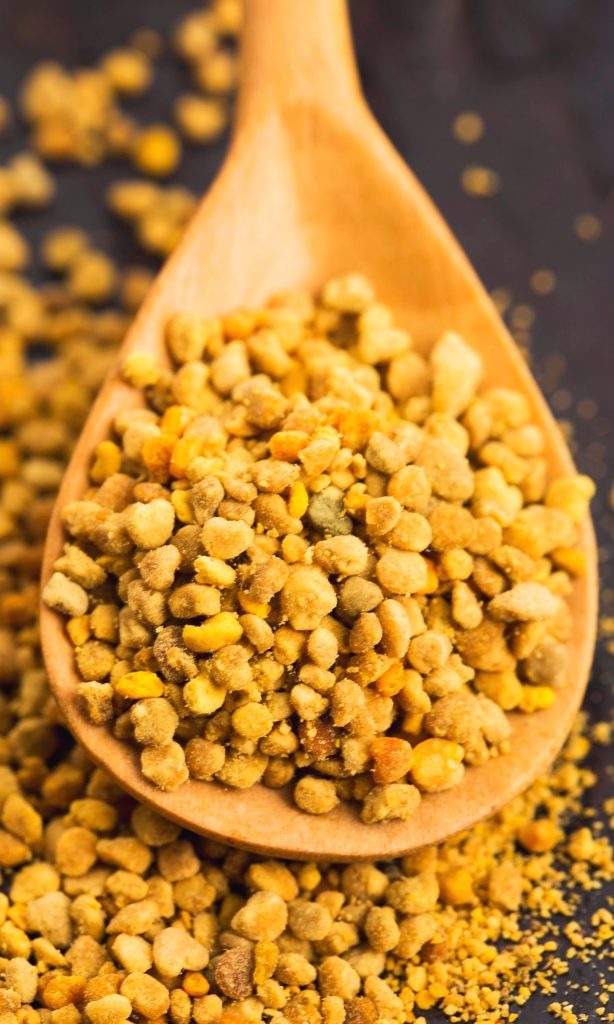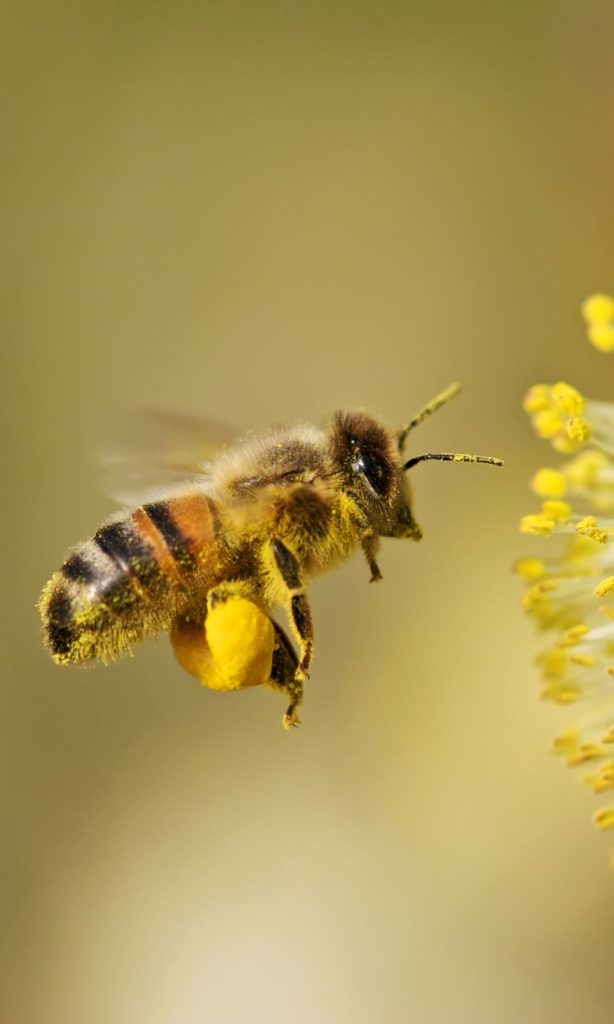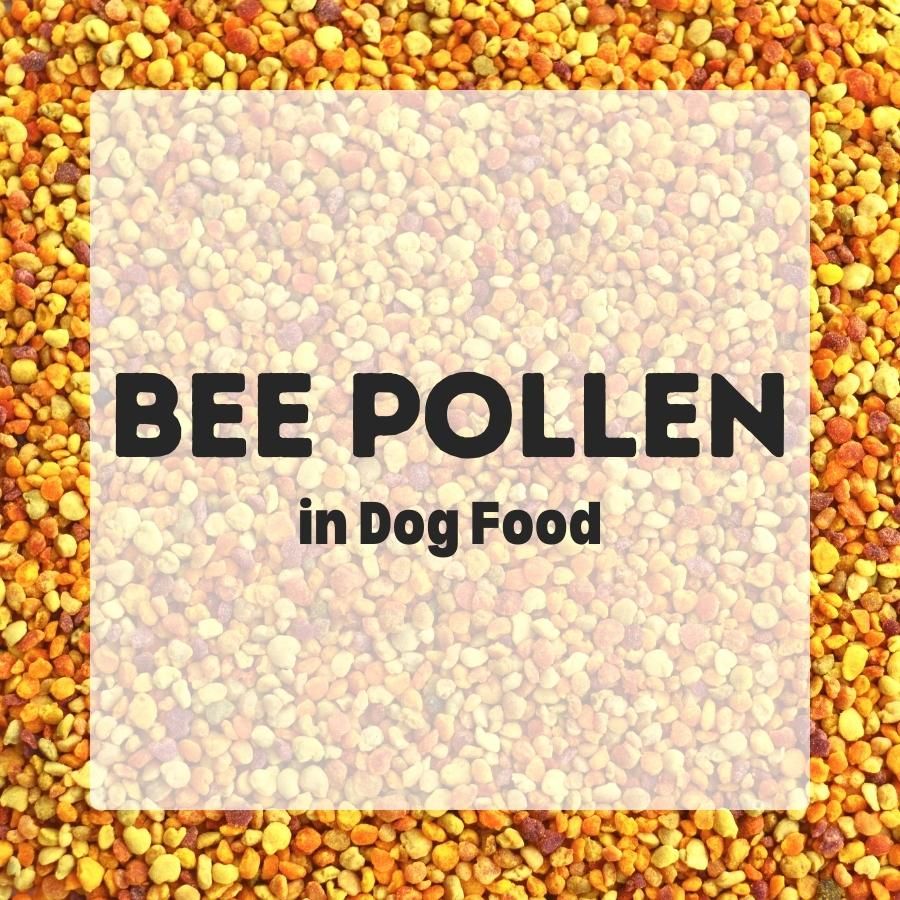Some manufacturers use bee pollen in their dog food recipes. In this article, we will go over what bee pollen is and what benefits it may offer to your dog’s nutrition.
Contents
What Is Bee Pollen?
Bee pollen is a natural substance produced by bees.
Worker honeybees collect flower pollen as a food source for their hive. It is stored in honeycombs and sealed with a drop of honey.
Bee pollen (or: ambrosia) is a mixture of pollen and honey.

Digestive enzymes from bee saliva or microbes were thought to start a fermentation process to make nutrients from pollen better available. Some people call this “bee bread”.
However, a 2014 study concluded that despite its microbial diversity, bee pollen like honey provides too harsh a microenvironment for bacteria and fungi to thrive[2].
The bioactive compounds in bee pollen have antimicrobial and antioxidative properties.
But bee pollen is indeed very rich in micronutrients.
It provides simple sugars (fructose and glucose), vitamins (tocopherol, niacin, thiamine, biotin, folic acid), trace minerals, amino acids, and phytonutrients (polyphenols, carotenoids, phytosterols)[1].
Other nutrients found in bee pollen include enzymes and co-enzymes plus some fatty acids.
But the exact chemical composition varies greatly between products and depends on factors like the flower species it was harvested from.
Benefits Of Bee Pollen
There are many health claims surrounding this natural honeybee product. Some people even consider bee pollen a superfood.
Some of its contents are digested by the gut flora making them prebiotics.
It is supposed to decrease inflammation, support liver function, the immune system, digestion, or cardiovascular health. Its advocates praise it as a natural remedy for a variety of ailments.

Due to its potential health benefits bee pollen is marketed as a functional ingredient for foods and dietary supplements.
However, more research is needed to fully understand the potential health benefits of bee pollen.
Although it looks like a promising ingredient, there is very little actual scientific evidence yet of any health benefits of bee pollen[1].
But there are also some potential downsides you might want to consider before adding bee pollen to your dog’s diet:
Some dogs might have allergies or sensitivities to pollen.
And bee products from areas with environmental pollution may be enriched with toxins such as heavy metals.
Bee Pollen As Dog Food Ingredient
As a dog food ingredient, bee pollen is typically only added in very small amounts. And only a very select number of dog food manufacturers use it in their recipes.
Since there is a lack of evidence for any of the typical health claims we have to consider it somewhat of a glam ingredient.

We still believe that the phytonutrients in bee pollen could in fact offer some nutritional benefits.
But given the very variable nutrient profile, you can’t really be sure what exactly was used as a dog food ingredient.
Since non-processed ingredients usually contain the highest amount of phenolic compounds, adding (organic) raw bee pollen as a dietary supplement might be a good choice.
Further Reading
[1] Denisow & Denisow-Pietrzyk. Biological and therapeutic properties of bee pollen: a review. Science of Food & Agriculture. 2016. https://doi.org/10.1002/jsfa.7729
[2] Anderson et al. Hive-stored pollen of honey bees: many lines of evidence are consistent with pollen preservation, not nutrient conversion. Molecular Ecology. 2014. https://doi.org/10.1111/mec.12966
